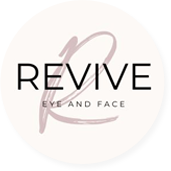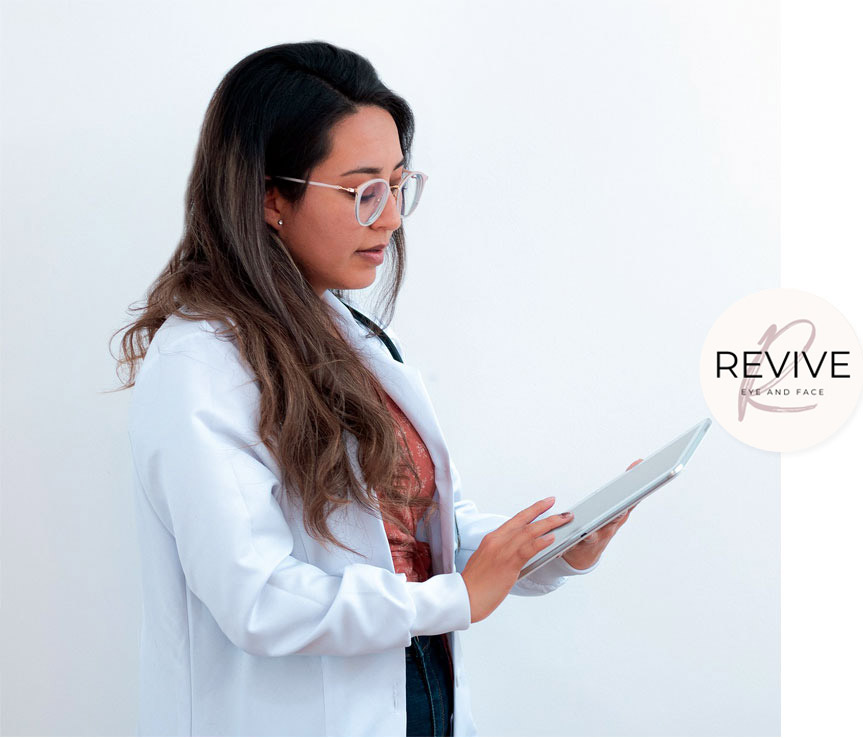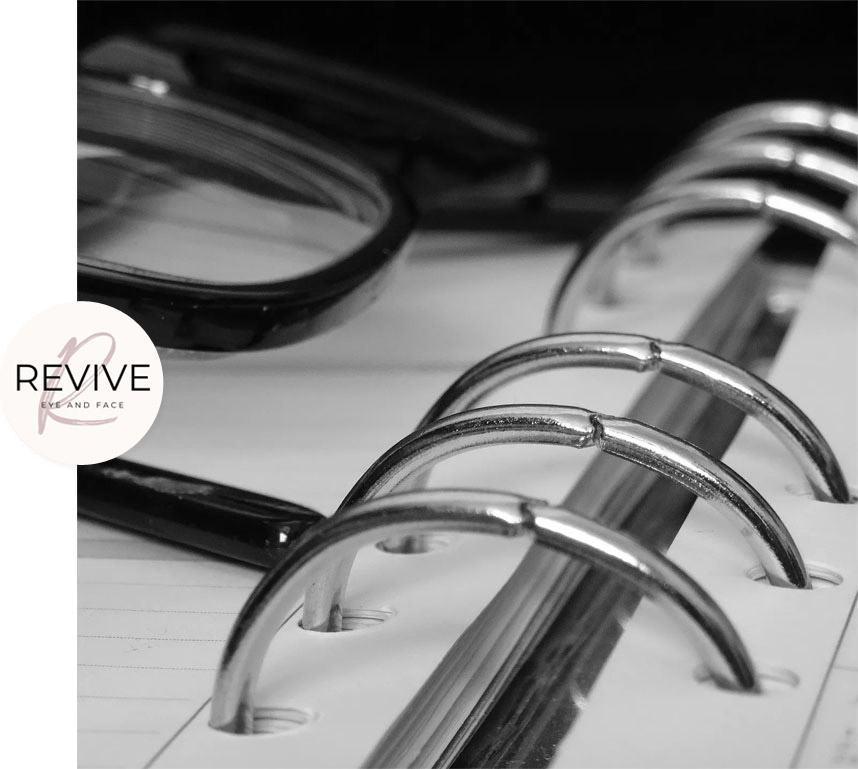Patient Resources
When possible for medical visits, a referral should be arranged through your eye doctor, or with the authorization of your primary care physician if it is required by your insurance carrier.
Dr. Kauh’s specialty is limited to the areas of the eyelids, tear ducts, and the orbit. She does not treat retina or glaucoma issues and she does not prescribe glasses or contact lenses.


When an appointment has been scheduled, a staff member will register you into our system and collect your insurance information so that your medical visit and procedures can be appropriately billed to your insurance, if your problem or procedure is covered by insurance.
Your credit card information may be collected at the time your appointment is made and kept on file because your insurance may require a copay or payment of a deductible and these will be collected prior to rendering of service.
For cosmetic consultation, the consult fee is $150 and this will be applied to the cost of treatment if you decide to proceed. If you choose note to proceed, the consultation fee is non-refundable.
You may fill out the new patient form which you can download here as this will help to expedite your check-in process at the time of your visit. It will also help to ensure we have your complete medical history at the time of consultation. It will also help to file claims to insurance or Medicare on your behalf in a timely fashion. If you choose to do this on the day of your appointment, please arrive 15 minutes prior to your appointment time.

Day Of Your Consult
Upon your arrival, you will be greeted by our staff who will update your registration and insurance information. Please bring your insurance card(s), and photo ID. If you did not fill out the pre-registration form online prior to your visit, then please plan to arrive 10-15 minutes early so that we may better assist you in completing this.
Payment of fees (e.g. co-pay, deductible) will be collected prior to services being rendered.
Next, your present concerns, symptoms and a detailed medical history will be recorded. From there you will receive consultation and evaluation by Dr. Kauh, who will take time to discuss your specific problem and go over details of the course of action as well as address your questions.
Depending on what your concerns or symptoms are, you may require more testing. If testing needs to be done please allow for 30 minutes to 1 hour for the test(s).
If you are a candidate for insurance coverage, the required testing is performed and the results will be submitted to your insurance company.
The insurance company decides if they will cover your surgery or if it is cosmetic.
“Dr. Kauh was helpful, kind, and went above and beyond to make me
feel comfortable in the approach to my healthcare. I couldn’t recommend anyone better to provide cosmetic services.”
The Preoperative Process
As a convenience to you, our surgery coordinators will obtain prior authorization from your insurance company. This process can take 2-6 weeks depending on your insurance provider. Once prior authorization has been approved, your surgery will be scheduled.
We will work with you to coordinate our schedules and set a surgery date.
Prior to the surgery, you will need to obtain pre-operative clearance from your primary care physician (or cardiologist). This is to ensure you are healthy enough to undergo anesthesia, as well as to obtain clearance to stop any blood thinners which could cause the risk of significant bleeding during your surgery.
If you are having a cosmetic surgery, prior to the surgery, we may have a final meeting to review expectations, risks and alternatives. Preoperative instructions will be discussed and provided. Your written consent for surgery will be obtained and payment for surgery will be collected.

Patient Forms
Patient Instructions
Postoperative Eyelid Surgery Instructions
Instructions
Chalazion Instructions
Postprocedure Eyelid Lesion Biopsy/Removal Instructions
Postoperative Tear Duct Surgery Instructions
Postoperative Eye Removal Surgery Instructions
FAQ
If you are having surgery in the operating room, you will have preoperative assessment by the preoperative nursing/anesthesia team. If it is felt that further medical workup or optimization is needed prior to surgery, this will need to be done in order to schedule your surgery.
• Stop smoking. Smoking causes reduced circulation to your skin and all your organs, and impedes healing. It is best to avoid smoking, second hand smoke and tobacco replacements, such as nicotine patches or gum in the weeks prior to and after your surgical procedure.
• Avoid supplements such as vitamin E, fish oil, garlic, ginseng, ginko biloba, glucosamine the week before surgery, as these have blood thinning effects and will cause increased bruising.
• Do not take aspirin or ibuprofen. Ibuprofen, Motrin, Alieve and all similar medications that contain aspirin should not be taken. Please review our list of drugs to avoid. These types of drugs can cause bleeding problems during and after surgery. As an alternate to these drugs, use medications containing acetaminophen (such as Tylenol).
• If you are on other blood thinners (such as Xarelto, Eliquis, Plavix, Warfarin/Coumadin), you will need clearance from your cardiologist to stop these in preparation for surgery.
• Fill your prescriptions. You may be given prescriptions for medications to be filled BEFORE the day of surgery. These prescriptions should be filled the day before and taken as instructed. On the day of surgery, you will be provided prescriptions for medications that are to be taken AFTER your surgery (this includes all antibiotics and pain pills).
Ensure all of your questions are answered. At this point in the process, having had your consultation and pre-operative visit, you will have already spent a good amount of time with Dr. Kauh. You still may have thought of more questions outside of meeting with her and you should contact Dr. Kauh’s office or you may message her to get the necessary answers to these questions.
• Consider taking Bromelain and Arnica Montana (pill form). These are herbs that will help with bruising and swelling. These herbs can be purchased over the counter at health food stores or drug stores.
•For Bromelain, take 1 pill twice daily.
•For Arnica Montana, take 4 pills, 4 times per day.
•You should begin taking them approximately 5 days prior to surgery and then discontinue taking them 5 days after surgery. If you forgot to take them and it is now the day before your surgery, you don’t have to worry – just start taking them today.
•Do not take aspirin or ibuprofen. Ibuprofen, Motrin, Alieve and all similar medications that contain aspirin should not be taken. Please review our list of drugs to avoid. These types of drugs can cause bleeding problems during and after surgery. As an alternate to these drugs, use medications containing acetaminophen (such as Tylenol).
• If you are on other blood thinners (such as Xarelto, Eliquis, Plavix, Warfarin/Coumadin), you will need clearance from your cardiologist to stop these in preparation for surgery.
• You may want to purchase a stool softener. A common side effect of pain relievers is constipation. It can be very beneficial to have a stool softener available (i.e. Colace or Dulcolax).
Confirm your surgery time. We will call you to confirm the time of your surgery. If you will be away from your home phone, office phone or cell phone, please remember to call Dr. Kauh’s office to confirm your time.
• Do not drink alcohol the night prior to your surgery. This can increase the possibility of vomiting or nausea after your surgery.
• Eating & drinking. Starting the night before at 12:00 midnight, do not eat or drink anything, including water or gum. If you need to take a daily medication the day of your surgery, please take it with a small sip of water early in the morning. It is unsafe to administer anesthesia to you if you’ve consumed solid food or liquids during the 8 hours prior to your surgery.
• Please do not wear moisturizers, creams, lotions, or makeup on the day of surgery. Do not wear contact lenses on the day of surgery.
• You must have transportation provided for you to and from the surgery. If you are having your surgery in the operating room with IV sedation you must have an adult to stay with you for the first 24 hours post-anesthesia.
• Prior to your surgery, please shower and wash the areas to be operated on with shampoo and soap. You can use normal soap, no special prescription soaps are needed. Keep all post-surgical dressings dry until told otherwise by Dr. Kauh.
• Check-in and arrival.
•If having surgery in the operating room please arrive at the surgical center at the instructed arrival time. This allows for plenty of time to complete any last minute paperwork, as well as for the nurse and anesthesiologist to meet with you to review your medical history.
•If having surgery in the procedure room, please arrive at least 15 minutes prior to your scheduled procedure time.
1. When is my first follow-up appointment with Dr. Kauh during my surgery recovery?
For most surgical procedures, Dr. Kauh will see you back in the office 1 week after surgery to make sure everything is fine.
2. How many follow-up appointments will I have with Dr. Kauh?
The number of follow-up appointments after surgery will depend on the exact procedure as well as how well you are healing. Most patients will see Dr. Kauh 1 week after surgery and then there will be future visits.
3. I have a follow-up appointment scheduled for next week, but I am having a problem that cannot wait until then. What should I do?
If you need to speak with Dr. Kauh, call the office (or after hours number). Occasionally urgent or emergent issues do arise, and should not wait for routine office visits.
No. Smoking (or use of any tobacco or tobacco replacement product) will delay wound healing and can lead to serious health problems after surgery.
Please minimize caffeine-containing drinks after surgery as they may elevate your blood pressure and can increase the risk of bleeding.
Please refrain from intaking alcoholic beverages after surgery as they may interact with the medications that you are taking and can have deleterious effects.
Many narcotic pain medications can slow down your intestines. Taking stool softeners such as Colace, Dulcolax or even fiber supplements will help keep your bowel habits regular and help you to avoid straining. Straining to go to the bathroom will elevate your blood pressure and can lead to bleeding during the post-operative period.
You may eat a normal diet after surgery.
Most surgical patients will be able to shower 24 hours after surgery but will need to avoid getting water sprayed directly on the incisions, and avoid having water from top of dirty head run over incisions.
Sutures that are left open to the air, may be cleaned gently with warm water and q-tip.
In most cases, patients may shower the day following surgery. Unless there is a dressing that should remain dry, then the operated areas can get wet. Hair washing can also be performed the day following surgery. if a brow lifting procedure or endoscopic forehead procedure were performed, then care should be taken to avoid scrubbing in the areas of the forehead incisions. Make-up should be avoided for 2-3 weeks near incision sites. Once scabbing and crusting has resolved then make-up may be applied to the operated areas.
For most operations, Dr. Kauh prefers that his patients avoid significant physical activity and excessive straining that can elevate your blood pressure, and lead to unwanted bleeding for at least 1 week after surgery.
Sleeping on your back with your head elevated is ideal.
Sleeping on a few stacked pillows so that your head is at a level that is above your heart will help to reduce swelling.
The amount of work missed following surgery varies from patient to patient. The type of surgery performed will influence the length of recovery but different patients may heal at different rates following the same type of surgery. Certain occupations will permit returning to work sooner than other more visually or physically intensive occupations. Most out patient surgical procedures require patients to miss atleast 3-4 days of work but some surgical procedures and patient occupations may require up to 7-10 days or more away from work. Dr. Kauh will try to help you estimate how much work may be missed once you finalize a surgical plan.
For most operations, heavy exercise including fast walking, running, weight lifting and core strengthening maneuvers will be restricted for about 1-2 weeks after surgery.
Patients may have diminished blinking and incomplete eyelid closure following eyelid surgery, particularly ptosis repair. Frequent ocular lubrication may be required for several weeks or months after eyelid surgery. Contact lens wear is typically avoided during the first 3 weeks after surgery or until adequate blinking and eyelid closure returns. After Surgery Instructions
No.
However, for some patients who are side or stomach sleepers Dr. Kauh may instruct you to wear a shield over your eye while sleeping to avoid rubbing or pulling at the incisions.
The amount of swelling and bruising varies from patient to patient and even from the left and right sides in the same patient. Mild bruising may resolve in 2-4 days, whereas more significant bruising may last 10-14 days. Patients may wish to hold blood thinner medications (such as aspirin, ibuprofen, some arthritis medications, Plavix, Coumadin, etc.) prior to surgery in order to minimize the risk of severe bleeding and bruising. Patients should only modify their medication regimen with the advice of their primary care physician, cardiologist, or other prescribing physician.
Eyelid and facial swelling tends to worsen the first few days following surgery. Ice packs, head elevation, and rest may help minimize swelling. Swelling (edema) will often improve considerably over the first 2-3 weeks after surgery but may take several weeks and even months to completely resolve.
Scars take about one full calendar year to completely fade, soften and flatten.
For eyelid scars, because the skin is very thin here and because the incisions are typically camouflaged in a crease or area that is not well visible, the scars are minimally perceptible even prior to a year.
Skin around the brows, or elsewhere on the face is thicker and therefore, the scars tend to be visible for longer but do fade and soften over time as long as sun exposure is avoided.
Silicone is very helpful for the healing and management of surgical scars and for the prevention of abnormal scars, such as hypertrophic scars and keloids. Silicone comes in gel and sheet forms. There are several brands available online and over the counter (examples include Scar-Away, Biocorneum, Strateum). Typically this may be started approximately 3 weeks after surgery, when the skin incision has fully healed.
Post-operative surgical scars in sun exposed areas pose a great healing challenge. Scars take nearly a full calendar year to heal as they mature, soften, flatten and fade. During that time, new scars are highly susceptible to UV photo damage. For that reason, Dr. Kauh always advises patients to keep their scars covered and avoid significant sun exposure during that year of healing. Should a scar become exposed to sunlight, it may develop color changes that can be permanent.
Office procedures are performed with local anesthesia which may include eye drops and small injections under the skin in the area requiring surgery.
Surgeries performed in an ambulatory care center or hospital are usually performed with intravenous sedation administered by an anesthesiologist. Some surgeries, such as orbital procedures, are performed under general anesthesia.
Dr. Kauh will be able to discuss anesthesia options once a surgical plan has been developed.
The expectations and risks associated with eyelid surgery may depend on the type of eyelid procedure(s) and may also vary from patient to patient. Patient compliance with postoperative instructions is critical to achieve the most optimal surgical result. Even in the best of surgical hands, unexpected results may occur.
Excessive pain, bleeding, and infection are very uncommon. Severe loss of vision following eyelid surgery has been reported but fortunately is extremely rare (approximately 1 in 2,000 cases). It may occur if deep orbital hemorrhage (bleeding) occurs postoperatively. This typically would occur within the first 24 hours following surgery, so it important for patients to have a responsible adult with them the afternoon, evening, and day following eyelid surgery. Incomplete eyelid closure and inadequate lubrication of the eyes following surgery (ex/ upper eyelid ptosis repair) may also result in corneal scarring or infection causing vision loss. it is critical for patients to understand the signficant risks associated with eyelid surgery and recognize the role the patient will have in their recovery and follow-up. Communication with Dr. Kauh and her staff regarding any concerns, particularly relating to vision or pain, is essential to potentially reduced the consequences of unexpected events following eyelid and other oculoplastic surgical procedures.
Smoking is an established risk factor for poor postop healing. Smoking cessation prior to surgery and during recovery will help diminish the risks of infection and other complications. Diabetic patients have similar increased risks associated with surgery.
BLURRED VISION: Your vision may be blurry after surgery and it may be a hard to read small print for at least 2-3 weeks after surgery. This is may be due to the lubricating ointment and drops in your eye(s), as well as secretions from your healing wounds and reduced blinking. Patients undergoing ptosis (droopy eyelid) surgery will experience more pronounced difficulties with blurred vision. You may need to avoid certain activities (work, computer, driving, athletic activities) until your vision improves. Always check your vision with your spectacles (distance or reading) and check each eye separately with the opposite eye completely covered. Patients with severe visual loss (ex/ unable to count fingers) or any vision concerns should always contact Dr. Kauh immediately.
PAIN: There may be some minor or moderate discomfort following eyelid surgery. Most patients will only require Tylenol. Plain or Extra Strength Tylenol, one (1) or two (2) tablets every four (4) to six (6) hours is usually adequate to control postoperative pain. If a prescription or pain medicine has been given to you, use it as directed. Most of the general discomfort due to surgery resolves after 3-4 days. Some areas, particularly the outer corners of the eyes (following lower eyelid surgery) or the scalp (areas of endoscopic forehead surgery) will remain tender for 2-3 months. If you have severe or excruciating pain, notify Dr. Kauh immediately.
SWELLING: Swelling and bruising may occur around the eye and operated area. The swelling should be soft to the touch. If the swelling is tense or firm, please contact Dr. Kauh’s office. Gravity will cause swelling and bruising to occur in the lower eyelids, cheeks, and rarely into the neck and chest even in patients that only had eyelid or forehead procedures. Many patients will experience swelling on the surface of the eyeball that looks like “blisters” or “bubbles”. Swelling on the eyes improves with ocular lubrication (artificial tears, lubricating eye ointment). Swelling typically worsens during the first 48-72 hrs after surgery. It should begin to improve at around 4-5 days following surgery. While much of the swelling disappears during the first month, some swelling and redness can often still be detected for up to 3-4 months or more.
REDNESS/ITCHING: Moderate redness and itching in the operated area is common in the first few weeks following surgery. Some patients experience significant itching around the 4th or 5th postoperative day. If your itching is associated with significant redness and/or worsening of your swelling, you may be experiencing an allergic reaction to your topical antibiotic drop or ointment. If this occurs, discontinue your topical medications and contact our office immediately. A small number of patients experience worsening of their itching and swelling with prolonged use of ice packs. We may also recommend that you stop your ice packs. Benadryl or other over the counter anti-histamine medications are recommended for itching that is bothersome.
IF YOU DEVELOP A FEVER, SUDDEN INCREASE IN SWELLING, PAIN, EYE PROTRUSION, OR SEVERE VISION LOSS CONTACT Dr. Kauh IMMEDIATELY.
“TIGHTNESS”: Following eyelid reconstruction, cheek reconstruction, or any facial procedure involving significant tissue tightening or mobilization, you may experience a sensation of “tightness”. Eyelid and facial tissues will begin to relax and “settle” starting around 3 weeks after surgery. This relaxation generally continues up to 6-12 months or more.
SUTURE REACTIONS: Some patients may react to deep absorbable stitches and form small, red, tender pustules 4-8 weeks after surgery. This is most common in the outer corners of the eyelids following lower eyelid tightening or eyelid reconstruction. These tender bumps may also occur in the stitch line of the upper eyelid or forehead. Hot compresses will usually help this problem that typically resolves over 2 weeks. Occasionally small incisions are made to relieve significant discomfort.
SCARS: All surgical incisions cause scars. Every attempt is made in elective surgery to minimize the appearance of scars. Incisions are generally made in the natural folds of the forehead and face whenever possible. Even so, many scars will remain visible. Scars are most prominent following surgery when they appear bright red. This redness will begin to fade around 3-4 months and by 6 months or so most of the redness will begone. The appearance of the scar will then slowly change and often improves for up to1-2 years following surgery. If a prominent scar requires revision this is not usually recommended until at least one year after surgery.
Schedule a Consultation

